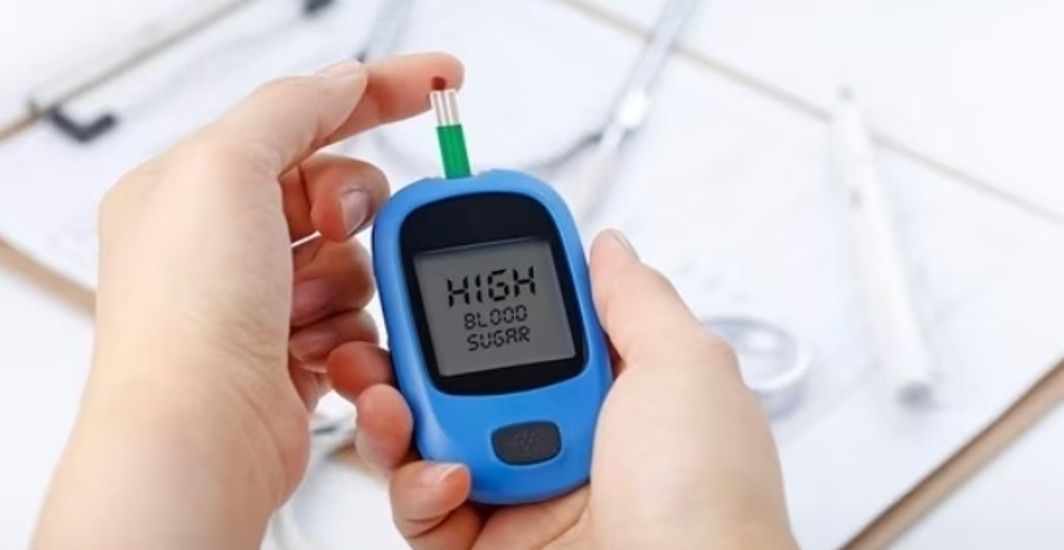Diabetes Management
The Role of Mangoes in a Diabetic Diet
2 min read
By Apollo 24|7, Published on - 08 April 2024, Updated on - 06 August 2024
Share this article
0
0 like
.jpg?tr=q-80)
The question, "Can I eat mangoes if I have diabetes?" is often asked during the Indian mango season. It's no secret that we all love the king of fruits - the Mango. However, when you're managing diabetes, you may find yourself second-guessing this natural delight. Here's the good news - you can still enjoy mangoes while keeping your blood sugar levels in check.
How Mangoes Impact Blood Sugar Levels
Mangoes contain natural sugar, but that doesn't mean they are off-limits for people who have diabetes. Mangoes have a relatively low glycemic index of 51, which means that they won't significantly raise your blood sugar level as compared to high-glycaemic foods. However, because they are high in natural sugars and carbohydrates, moderation is key.
Portion Control and Timing
Managing your diabetes isn't just about what you eat; it's also about when and how you eat it. For instance, consuming one small to medium-sized mango twice a week during the mango season could be beneficial. This is because mangoes are high in fibre water content vitamins and minerals, which can help slow glucose absorption into the bloodstream. Eating mangoes as a snack between meals rather than as a dessert after meals can also help keep your blood sugar levels stable.
Pairing Mangoes with Protein
Eating mangoes with protein and fat-rich foods such as yoghurt nuts and seeds can also help reduce spikes in your blood sugar levels. This is because protein and fat take longer to digest, thus slowing down the release and absorption of sugar from the mango into your bloodstream.
Individual Factors and Consultation
While many individuals with diabetes can enjoy mangoes without causing harm to their blood sugar control, this may not be true for everyone. Different people can have different responses to the same food depending on their metabolism and stage of diabetes. Therefore, it's best to consult your doctor before adding mangoes to your regular diet, especially if you're on medication.
Enjoying mangoes while managing diabetes is entirely possible. The key is portion control, mindful consumption and regular monitoring of your blood sugar levels. So, go ahead and savour the fruit of the season - just remember to do so sensibly.
Diabetes Management
Consult Top Diabetologists
View AllLeave Comment
Recommended for you
.jpg?tr=q-80)
Diabetes Management
Effective Treatments for Diabetic Neuropathy in the Feet
Diabetic neuropathy in feet doesn't have to rule your life. You can effectively manage this condition with the right medical treatments, lifestyle changes, and preventive measures. Remember, individualised care is paramount, and enrolling in a supportive program like Apollo Super 6 can make your journey toward managing diabetes less daunting.
Diabetes Management
Wearable Health Devices and their Advantages for Diabetics
Wearable health devices have revolutionised the way we manage diabetes. With continuous glucose monitoring, real-time data integration, custom alerts, and overall quality of life improvements, these devices are a boon for diabetic individuals. Learn more about how these devices can help you manage your health better while aligning with programmes like the Apollo Super 6 for a comprehensive approach to tackling diabetes.

Diabetes Management
Stabilizing Your Blood Sugar: Managing the Highs and Lows
Managing fluctuating highs and lows in blood sugar levels is critical for diabetics. Regular monitoring offers clear insight into the effectiveness of lifestyle adjustments and medication. By understanding various factors that impact blood sugar levels and working closely with their doctors, one can effectively prevent hypoglycemia and hyperglycemia. With a comprehensive self-care plan and guidance from doctors, taking control of the diabetes journey and leading a healthier life is possible.
Subscribe
Sign up for our free Health Library Daily Newsletter
Get doctor-approved health tips, news, and more.
Visual Stories

8 Fruits That are Incredibly Healthy for Diabetes
Tap to continue exploring
Recommended for you
.jpg?tr=q-80)
Diabetes Management
Effective Treatments for Diabetic Neuropathy in the Feet
Diabetic neuropathy in feet doesn't have to rule your life. You can effectively manage this condition with the right medical treatments, lifestyle changes, and preventive measures. Remember, individualised care is paramount, and enrolling in a supportive program like Apollo Super 6 can make your journey toward managing diabetes less daunting.
Diabetes Management
Wearable Health Devices and their Advantages for Diabetics
Wearable health devices have revolutionised the way we manage diabetes. With continuous glucose monitoring, real-time data integration, custom alerts, and overall quality of life improvements, these devices are a boon for diabetic individuals. Learn more about how these devices can help you manage your health better while aligning with programmes like the Apollo Super 6 for a comprehensive approach to tackling diabetes.

Diabetes Management
Stabilizing Your Blood Sugar: Managing the Highs and Lows
Managing fluctuating highs and lows in blood sugar levels is critical for diabetics. Regular monitoring offers clear insight into the effectiveness of lifestyle adjustments and medication. By understanding various factors that impact blood sugar levels and working closely with their doctors, one can effectively prevent hypoglycemia and hyperglycemia. With a comprehensive self-care plan and guidance from doctors, taking control of the diabetes journey and leading a healthier life is possible.

